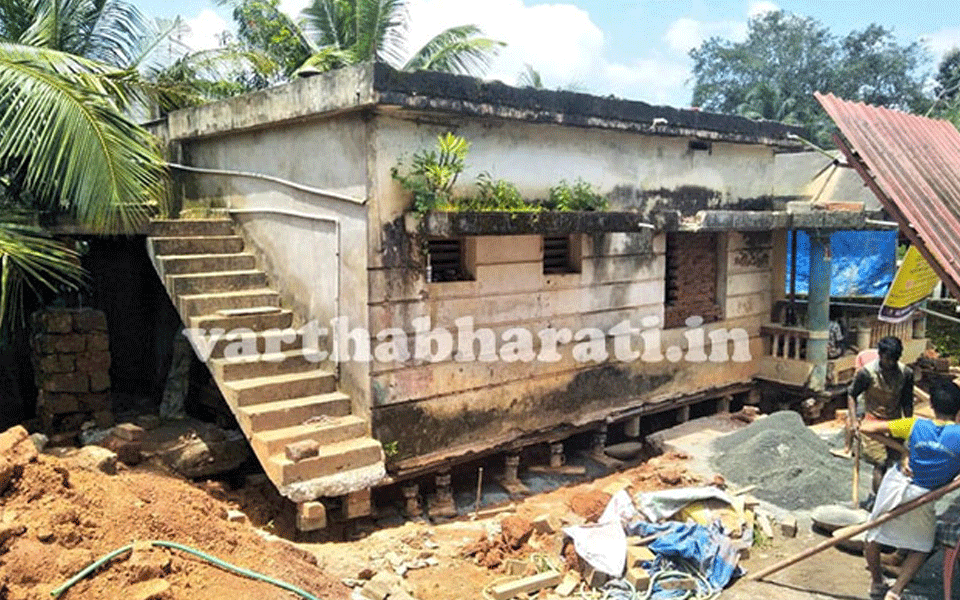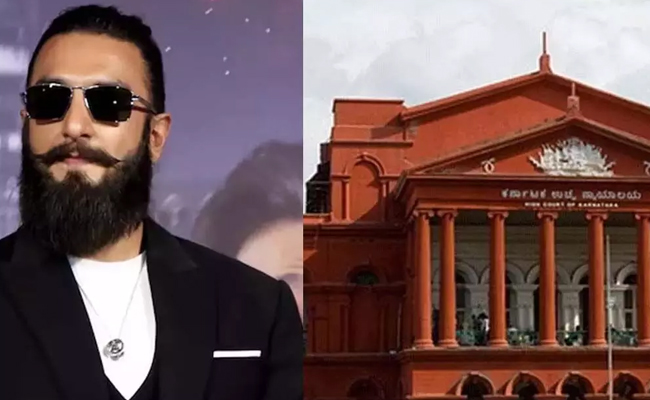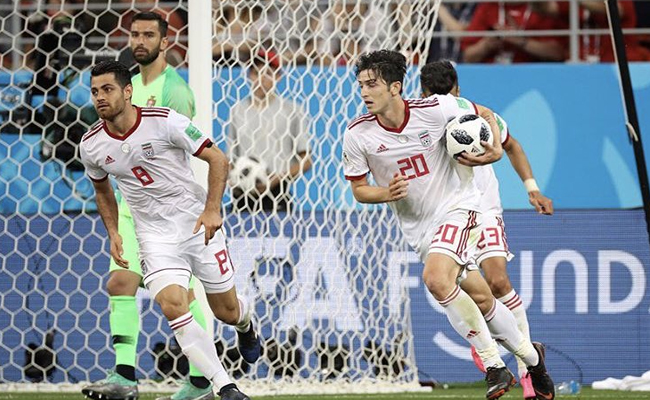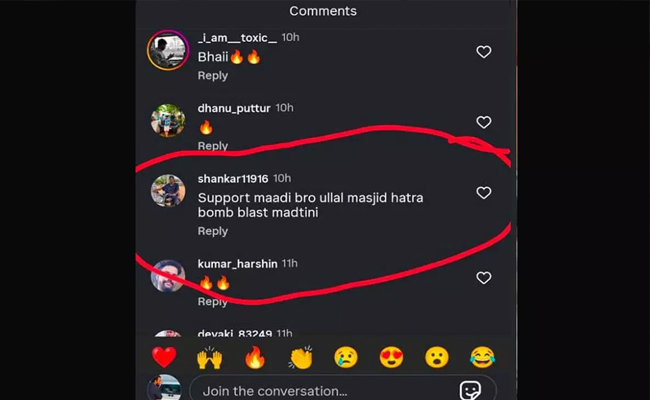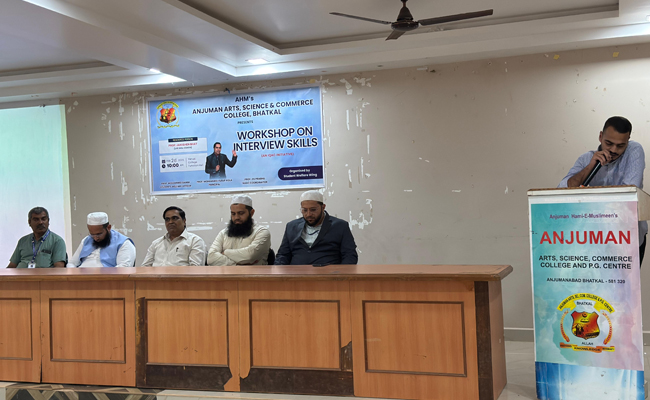Bantwala, September 4: Normally, during rainy season, people face lot of problems. The people living in low-lying areas have to prepare for facing the worst situation. When the rain water gushes into the houses, the people have to shift themselves elsewhere temporarily. Along with the electronic gadgets, they have to shift other materials too.
Riyaz of Bylaguttu in Sajeepanadu village who encounter such a situation every year, has come out with a novel idea ‘House lifting’ to protect his house from flood water and subsequent problems. During heavy rains, the Netravati river water gushes into some houses in the village. Bylaguttu and Bolame residents have to face this problem every year. They would not have road connectivity. Without any alternative, the residents have to shift themselves temporarily. Depressed over this problem, Riyaz got information on ‘house lifting’ and based on this, he contacted Delhi-based Hari Om Shiva House Lifting and Construction Private Limited and got information. With the help of this company, he has planned to lift his house during flood situation.
So far, the jacks were being used to lift vehicles and now, using these jacks, the entire house can be lifted without allowing the walls to collapse. The house will be constructed along with the walls by digging the ground base.
“I have decided to do this adventure depressed over the flood situation every year. I have got information from the local people and contacted the company which developed a jack to lift my entire house. Already, the work has started and it will be completed in a few days. Around 1000 sq ft house would cost Rs 2.5 lakh for adopting this mechanism”, Riyaz said.
Currently, the house was lifted around one foot above and two more feet should be lifted. Total 180 jacks will be used systematically in all the four corners to lift the house. As and when the house is lifted, the jacks would be removed and bricks would be placed”, he said.
The company is working in Karnataka for the first time. Other construction companies have done such house lifting or shifting works in some places. So far, it was seen in other states. But now, it has entered the coastal region as well to find a solution to the people residing in low-lying areas.
“Earlier, I had the fear of losing the wall. But now, I have to adopt the technology to avoid flood water gushing into the house. We have also decided to adopt this technology to my brother’s house and the work has started. It would cost around Rs 3 lakh”.
- Muhammad Riyaz, House Owner
“This work is being taken up in Karnataka for the first time. The company has done such works successfully in other states including Kerala. It will require one month time. After starting the work of Riyaz’s house, he asked us to lift another house of his brother. The work has already started”.
- Rahul Chauhan, Owner, Hari Om Shiva House Lifting and Construction Company
Let the Truth be known. If you read VB and like VB, please be a VB Supporter and Help us deliver the Truth to one and all.
Bengaluru (PTI): The Karnataka High Court on Monday extended the interim relief given to Bollywood actor Ranveer Singh till March 9, in a case related to mimicking a character from the movie, 'Kantara Chapter-1', and allegedly mocking a deity.
The actor had approached the High Court seeking the quashing of the FIR against him for mimicking Rishab Shetty's role as 'Chavunda' deity in the movie.
While mimicking, Singh had called the deity a "ghost". The actor was asked to appear before the court in person on Monday.
Appearing on behalf of the actor, his counsel Sajjan Poovayya said Singh was stuck in London and was unable to reach Bengaluru due to the conflict in West Asia.
The complainant, who is a lawyer, alleged that his religious sentiments were hurt by calling the deity a ghost. On the directions of a local Court, the police registered a case against the actor.
The High Court on February 24 granted interim relief to the actor with directions to the police not to take any coercive steps against him.

